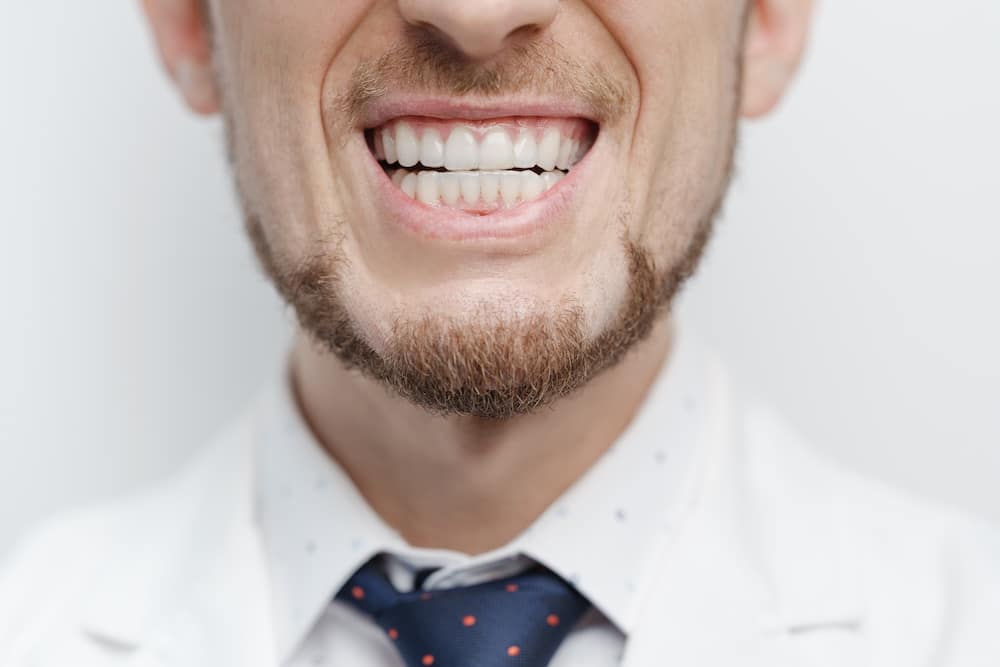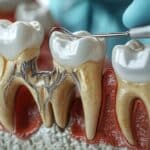Imagine waking up with a sore jaw or a persistent headache, not knowing why. You might be one of the many people who grind their teeth at night, a common condition known as bruxism. While it may seem harmless at first, chronic grinding can lead to severe dental issues, including the need for dental implants.
In this article, we’ll explore how this common habit can cause significant damage to your teeth and what steps you can take to prevent it from leading to invasive dental procedures.
What Is Teeth Grinding?
Teeth grinding affects many people, often without them even realizing it. There are two main types of involuntary teeth clenching and grinding: sleep bruxism, which occurs during the night, and awake bruxism, which occurs when one is conscious.
Stress, anxiety, and even certain disorders like specific neurological disorders can trigger this habit. There are also medications that can cause bruxism as a side effect, such as drugs that affect your central nervous system.
For some people, abnormal alignment of the jaw or teeth can cause teeth grinding. It’s their body’s attempt at correcting the misalignment. Bruxism can also run in families.
The Negative Effects of Teeth Grinding
Teeth grinding can be a real pain, literally. You might not even realize you’re doing it, but that nighttime gnashing can cause some trouble down the road.
Imagine waking up with a headache that feels like someone tightened a vise around your head. Plus, all that grinding can wear down your teeth, making them sensitive to hot and cold drinks. You might even end up with chips or cracks, which is no fun at all.
Beyond the damage to your teeth, bruxism can also cause persistent jaw pain, often leading to temporomandibular or TMJ disorders. The discomfort can spread to your neck and shoulders, which can add to your stress. Plus, if you grind your teeth at night, you might not get the restful sleep you need, leaving you feeling tired and less productive during the day.
All that clenching and gnashing can also mess up your bite, the way your teeth fit together. This might mean needing braces or other treatments to get things back in line.
And if you sleep with someone, forget about a peaceful night’s rest for them. That grinding noise can be like nails on a chalkboard, keeping your partner awake and frustrated. Not exactly a recipe for relationship bliss, right?
How Teeth Grinding Can Lead to Dental Implants
One of the primary ways bruxism leads to dental implants is through the wear and tear of tooth enamel.
Imagine your teeth are like little castles, with tough enamel as the outer wall. Grinding away at them is like chipping away at those walls, bit by bit. Over time, the softer stuff inside (dentin) gets exposed. Now, your teeth are more sensitive and prone to cavities and cracks.
If the damage gets really bad, it might be too late for fillings or crowns. That’s where implants come in, replacing the lost defenders of your smile.
Other ways teeth grinding can lead to dental implants include:
Damaged Teeth: The constant pressure from grinding can chip, crack, or even break teeth. If the damage is severe and cannot be repaired with fillings or crowns, extracting the tooth and replacing it with a dental implant may be necessary to restore both function and appearance.
Loose Teeth: The force of grinding can loosen teeth, particularly if there’s already existing gum disease or bone loss. Loose teeth can become difficult to chew with and may eventually need to be extracted. Dental implants can then be placed to restore stability and function.
Jawbone Loss: In severe cases, teeth grinding can contribute to bone loss in the jaw. This can further loosen teeth and make them more susceptible to problems. Dental implants can help replace missing teeth and, by acting like tooth roots, stimulate the jawbone to maintain its density.
How to Prevent Teeth Grinding
Preventing teeth grinding starts with understanding its triggers and taking simple, practical steps to address them. Here are some ways to stop the nasty habit:
- Ease your stress: Life can be stressful, which is a major cause of teeth grinding. Find ways to relax that work for you- whether it’s yoga, meditation, or taking a few deep breaths. Sometimes, a warm bath or curling up with a good book can make a world of difference.
- Create a sleep sanctuary: Good sleep is essential. Make your bedroom a calming haven- keep it cool, dark, and quiet. Try to avoid screens before bed to help your mind quiet down. A consistent bedtime routine can signal your body that it’s time to relax.
- Stay hydrated: Drinking plenty of water throughout the day keeps your body and muscles, including those in your jaw, well-hydrated and less likely to tense up.
- Cut back on caffeine and alcohol: These two can increase muscle activity, making you more likely to grind your teeth. Try to limit these, especially in the evening to help your body relax naturally.
- Do jaw exercises: Gentle jaw exercises can help relax and strengthen the muscles around your jaw. Ask your dentist or physical therapist for simple exercises you can do at home to reduce tension in the area.
- See your dentist regularly: Regular dental checkups are essential. Your dentist can spot early signs of teeth grinding and give appropriate treatments and advice.
Conclusion
In conclusion, understanding how teeth grinding can lead to dental implants is crucial for maintaining oral health. Chronic grinding wears down enamel-damaged teeth and can cause significant dental issues, including tooth loss. Preventative measures like using a night guard, managing stress, and regular dental check-ups are essential in mitigating these risks. By addressing bruxism early, you can preserve your natural teeth and avoid the need for invasive procedures such as dental implants, ensuring long-term dental health and functionality.
Contact New Teeth Now to explore your options and protect your smile today!









